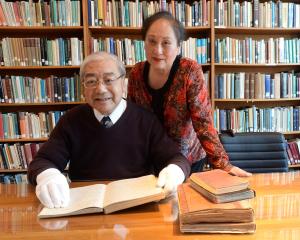The anti-opium agitation has been of too long duration to leave any need for general enlightenment on that score today.
The "United Christian Appeal for the Ending of the Indo-Chinese Opium Traffic", which received recent prominence, indicates that the movement in opposition to the traffic has by no means lost its vigour.
After the resolution passed by the House of Commons in 1906 to the effect that the Indo-Chinese opium traffic was morally indefensible and should be brought to a speedy close, the Government of Great Britain opened negotiations with China, which resulted in an agreement that the export of opium from India to China should be reduced by one-tenth annually for ten years, provided that the Chinese production of opium were reduced in an equivalent ratio.
The British Government has declined to discuss its existing arrangements with China in regard to opium, which provide, under certain conditions, for the gradual extinction of the Indian exports.
Its reply to anti-opium organisations is virtually that these conditions represent the utmost assistance which the Indian Government is able to give without plunging its administration into confusion.
The Society for the Suppression of the Opium Traffic is appealing for an acceleration of the Indian arrangements, and the "United Christian Appeal", which bears the signatures of many eminent persons, has for its purpose the release of China from her obligations and the immediate stoppage of the Indian traffic.
There is apparently no distinct prospect, however, that the Indo-Chinese opium traffic will not be allowed to run its course.
• Quite a sportsmanlike attitude was exhibited by a number of competitors in the hop, step, and jump event at the Mangatu sports (Gisborne) a few days ago.
A young fellow named Roy Patterson broke a small bone in one of his feet, which absolutely precluded him from further contesting the event.
The other competitors immediately withdrew, and allowed Patterson to win the event.
The public also subscribed the sum of 4, which will go towards defraying the expenses at the hospital, where he was conveyed on arrival of the train at Gisborne.
• The annual meeting of the Waikane Racing Club was responsible for a riot in a small way (says a Press Association message from Wellington).
Two horses belonging to one owner started in a race with two others.
The former two monopolised most of the betting, Rongomai being at a short price and St Amelia quoted at remunerative odds.
The latter started three lengths in front of the field at the word "Go!" and got the inside running.
A yell of derision immediately went up from the crowd, and this was continued when Rongomai came down the straight with his mouth wide open, hard held by Gray.
The stewarts called a meeting, and decided that all bets were off, suspended Gray for six months, and let the judge's placing stand.
This announcement quelled an ugly situation, and met with approval.
- ODT, 4.1.1911.



